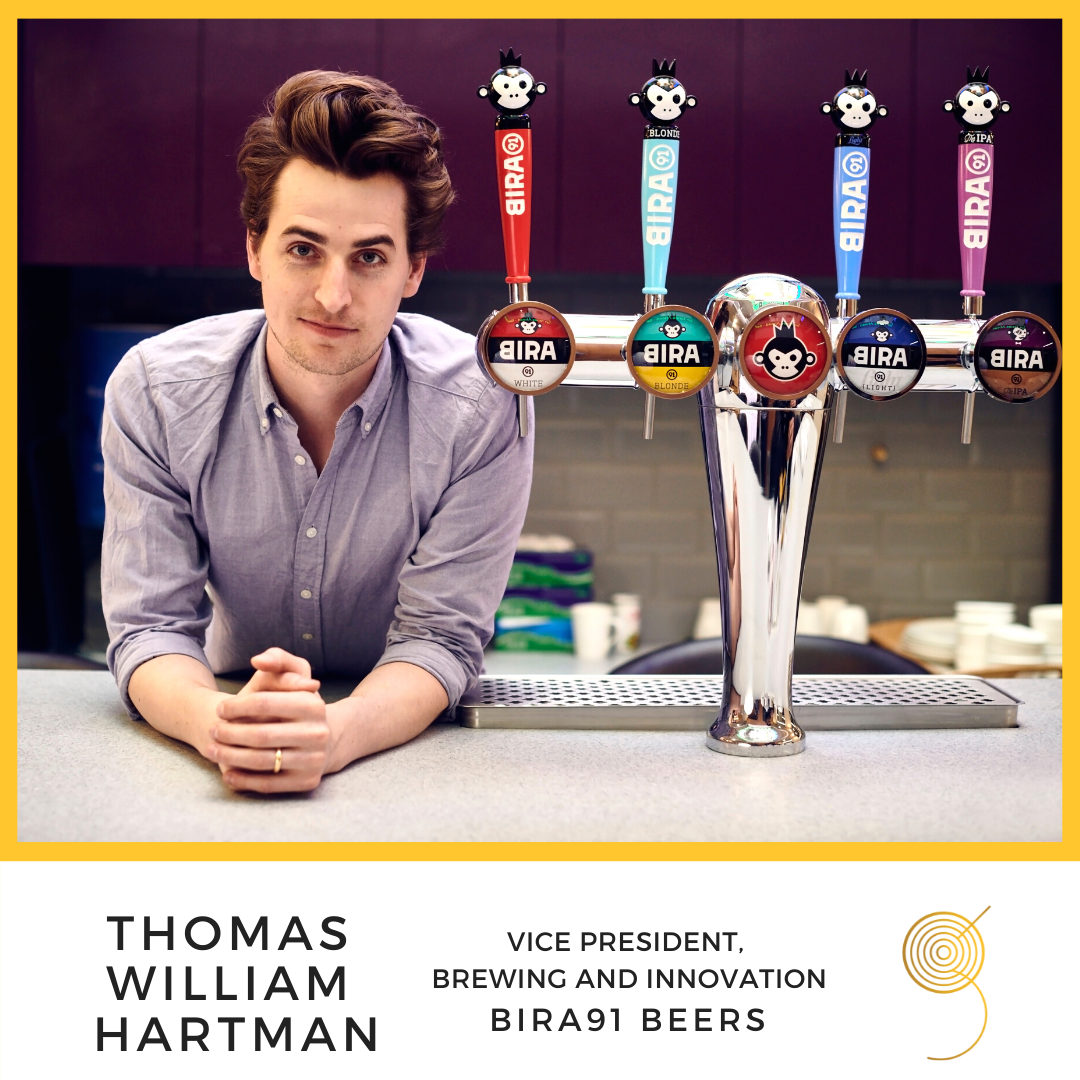At first glance the lean and rather sporty frame of Thomas belies his beer credentials; one’d expect a brewer to be less, sinewy! But a few minutes into the conversation and one soon begins to understand the vast expanse of knowledge that Mr. Hartman is and the richness of the experience he brings to the beer table. Bira91‘s head brewer is a treasure trove of beer facts and stories and his presence has changed the brands’ perceived image drastically in a short time. We got to share a few pints with him and the talk just flowed. From the beers Thomas made us try, one can easily say that Bira91’s brews are in safe hands for the moment. Here’s how it went.
Thomas started as a homebrewer before deciding to go to school. He earned the Siebel Institute Master Brewer certification, and went on to work in craft breweries of different sizes in Sweden and the US before joining AB-InBev’s ZX Ventures as global innovation brewer, working with their craft and specialty brewers around the globe. Thomas joined Bira 91 in the beginning of 2019 as VP of Brewing and Innovation.
What inspired you to become a brewer?
When I was growing up I was always into cooking and making little packaged goods like soaps or shampoos or sauces. My mom is a great cook and I was always learning from her. When I graduated from high school she actually got me a homebrewing kit. I think she just knew I would like it, and she was right. I got more and more sucked in until I figured I would go to school and become a professional.
Which is the one language you wanted to learn and one you have never wished to?
Right about now I really wish I spoke Hindi. I’ve learned two other languages, but they were more or less similar to my native tongue. Hindi is on a whole different level of difficulty for me. I love languages. You can tell so much about a culture by how they speak, so there was never one I didn’t want to learn.
What is unique about your style of making beers?
The more experience I’ve gained the more and more simple my approach has become. I try to keep the raw materials simple and good, and get the complexity from the process. I played a few instruments when I was growing up and I remember my teacher once told me “silence is a note.” Sometimes what isn’t there says as much as what is.
How would you describe your job to a child?
I’d probably say, “I’ll tell you when you’re older.”
Which is the most unique beer you have tasted?
I’ve tasted a lot of “unique” mistakes I’ve made over the years, but those always end up in the drain. I once had a beer that was brewed with frozen pizza and money. Not sure why.
What are the biggest hurdles you face while making beers in India?
You said to keep it short, but I could write a book here. I’d say the biggest issue for all brewers in India is the Government. There is so much regulation, so much tax throughout the entire supply chain, so much red tape. The alcohol industry is one of the biggest revenue sources for the states that allow sale, but the policies in place make it very challenging for us to run our operations and make a sustainable level of profit.
What style(s) of brew do you think India should opt in near future?
I think fruited sour beer has potential to be big here. There are so many unique fruits with amazing aromas and flavors. Making sour beer that is drinkable and balanced is not easy, so I think the focus needs to be on ensuring these beers are done really well, especially at first, to convince people they’re worth drinking. When its 45° out a sour beer hits the spot.
If there were a beer that you could brew with no regards to cost of production or sales targets, what would it be and why?
One day when I am old I would like to open up a little brewery in the woods in my home state and make traditional open fermented Bavarian Weissbier and classic German Pilsener.
What’s your favourite tipple at the end of a busy day?
A pint of Guinness and a short glass of Irish, usually Teeling.
What is your advice to young professionals seeking a career in this field?
First I’d say really examine why you want to get into the beer industry, and pick the right avenue for you based on what you want to do, but more importantly what you’re good at. Then I’d say get an education, either formal or on the job. Don’t try to start a brewery until you’ve worked in one.

